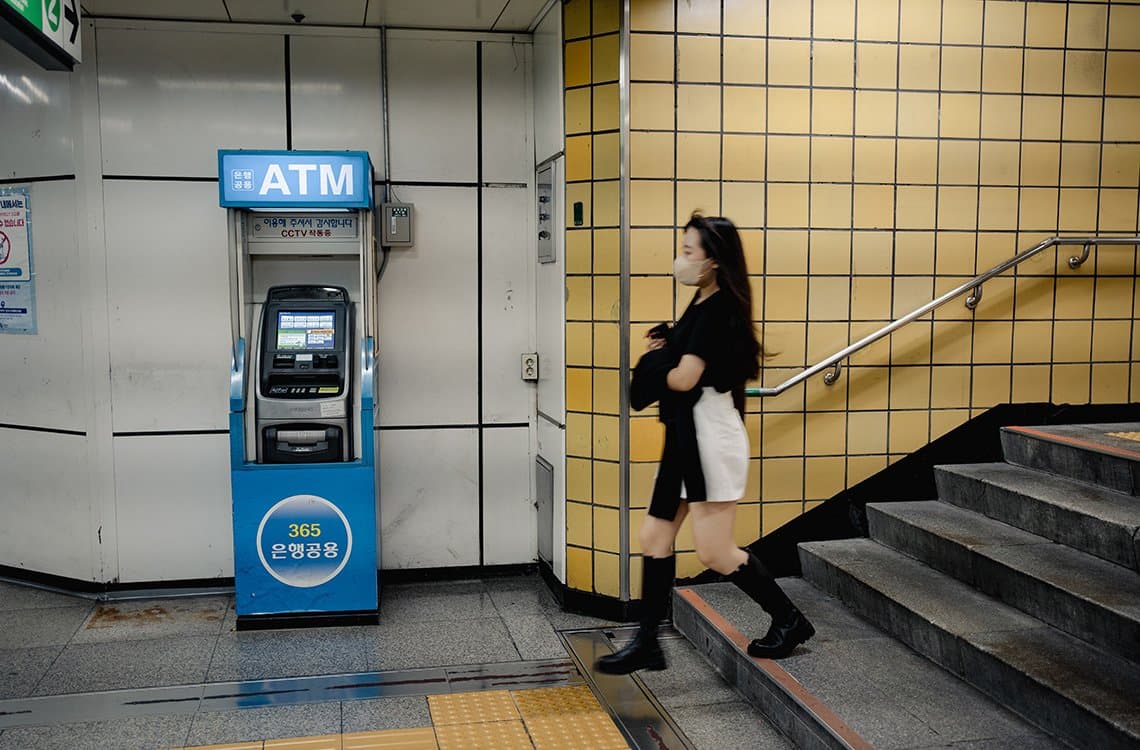
Koreans Mourn Lost ATMs and Call for Cash Protection Debate
Korean newspaper the Dong-A Ilbo says that over 14,400 ATMs have vanished from the nation’s streets since 2018, with some residents reacting strongly to their loss, and suggests now is the time for a public debate to answer the question: is cash a public good that should be protected even if it costs money to maintain?
The report opens with the story of a bank in Daegu—Korea’s fourth-largest city by population—that posted a sign announcing the planned removal of an ATM. It was rapidly ‘covered with handwritten messages from residents’ expressing sadness over the loss, saying things such as ‘please stay’ and ‘don’t go…’.
The piece asks: in an era where it is becoming difficult for Koreans to withdraw and spend cash, will it go extinct? It acknowledges the cost of issuance and transport, but what are the costs of going without?
Earlier this year, the Bank of Korea spoke up for cash in a campaign designed to ensure broader acceptance, recognising its importance to social inclusion and a resilient economy. It highlighted that while some people depend on cash, even those who prefer cashless may find themselves in need of cash, perhaps due to a dead phone battery or a network outage such as the Kakao platform crash that prevented millions of cashless payments across Korea in late 2022.
For some, cash is the only means of payment. Please be considerate and allow people to use cash everywhere so that no one is left out.
The popularity of cash has also grown amongst twenty-something Koreans seeking an alternative to more radical budget management trends such as 2022’s ‘No Spend Challenge’ and 2023’s ‘Beggar Chatrooms’ where people gathered to critique each other’s spending habits.
Furthermore, cash has a deep cultural significance, with Korean New Year seeing the exchange of bokjumeoni (lucky pouches) containing banknotes, and people attending the first birthday party of a child commonly expected to place cash gifts into an envelope provided on entry. Weddings are also a popular occasion for cash gifting, with one of the first stops when entering a wedding hall typically being a counter dedicated to the happy couple where guests can place an envelope of cash with their name written on the back. The amount given is often noted so the newlyweds can reciprocate on the next appropriate occasion.
The Dong-A Ilbo article concludes by saying that while the nation has legal provisions for the right to pay in cash—with Article 48 of the Bank of Korea Act stating ‘notes issued by the Bank of Korea shall pass as legal tender freely for all transactions’—there are no penalties for violating them.
Are we okay with a cashless society? Is cash a public good that should be protected even if it costs money to maintain? It’s time for us to start debating this.
